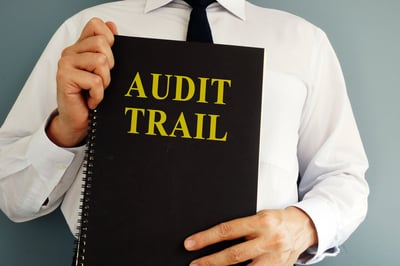- Home
- About
- Services
- Tools & Resources
- Client Info
- Request Info
- Carrier Tools
- Contact Us
- Get a Quote
- Français
An “audit trail,” as the Canada Border Services Agency (CBSA) perceives it, means tracking a particular order from conception to completion, including:
Keep in mind, an audit trail doesn’t end once the goods are delivered and paid for.
Any overages or shortages at time of delivery need to be documented and reported to the CBSA. Also, any additional activities, such as corrections or adjustments to the original transaction, must be included in the audit trail.

When you place an international order, create a file to include all documents noted above.
It should be traceable by the Customs B3 transaction number when the goods are entered into Canada. It can also be tracked by the PO number, as long as the file includes a clear cross-reference to the Customs transaction number.
In other words: what practices do you need to put into place to make this an internal corporate best practice?
Firstly and most importantly, CBSA requires that records of all transactions be maintained for a period of not less than 6 full calendar years from the date of accounting (Duty Paid Date).
If CBSA requests copies of a certain record, and you don’t have them, penalties under Contravention C160 of the Administrative Monetary Penalty System (AMPS) will be issued. The penalty for Contravention C160 is $25,000 CAD. Ouch.
Also worth remembering, any adjustments to the original transaction must be visible for accounting purposes to ensure accurate accounting records are in place. Not having complete records can also have effects that trickle over into the Canada Revenue Agency (CRA) and other government agencies.
Cole’s dedicated Audit Response Unit is here to support importers in the event they have been chosen for a Trade Compliance Verification.
We can perform an analysis of your current practices and determine how an audit trail can be implemented to ensure compliance. We can also provide a framework and assist you in implementing best practices for your specific business model.
We understand the potential risks and costs to a business facing a Trade Compliance Verification (sometimes referred to as an audit)—contact one of our experienced Customs professionals today.